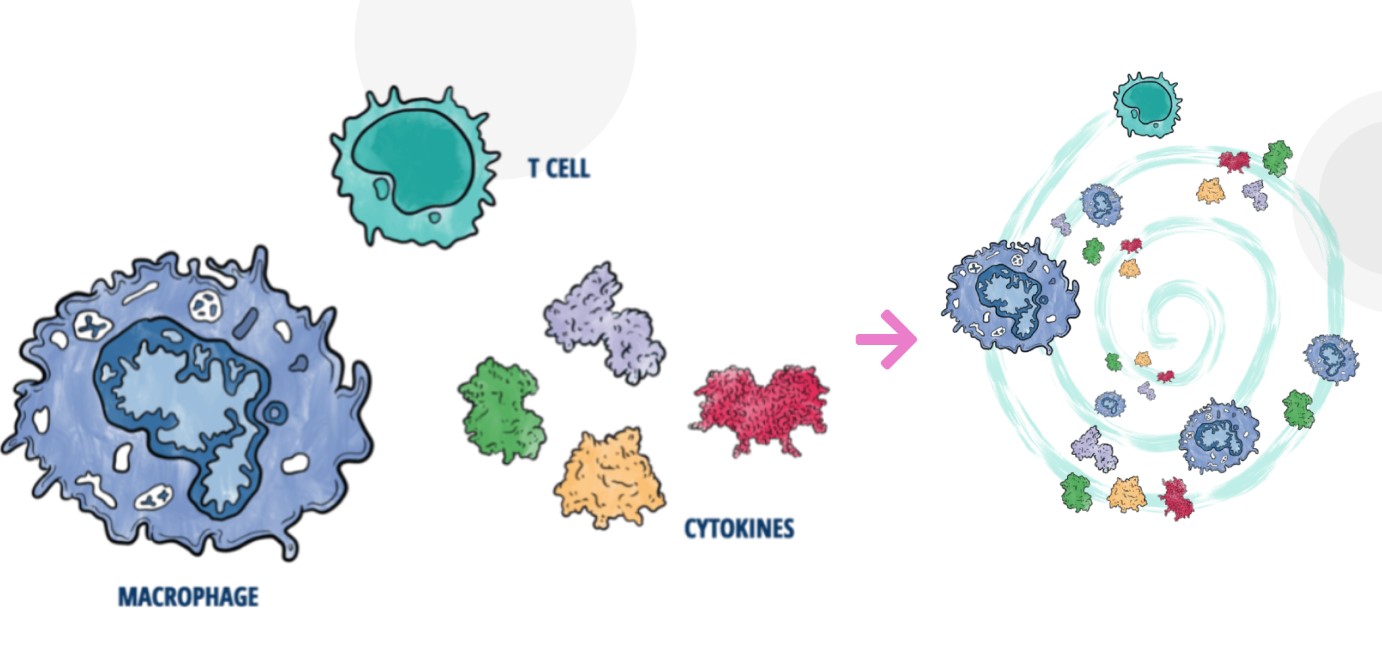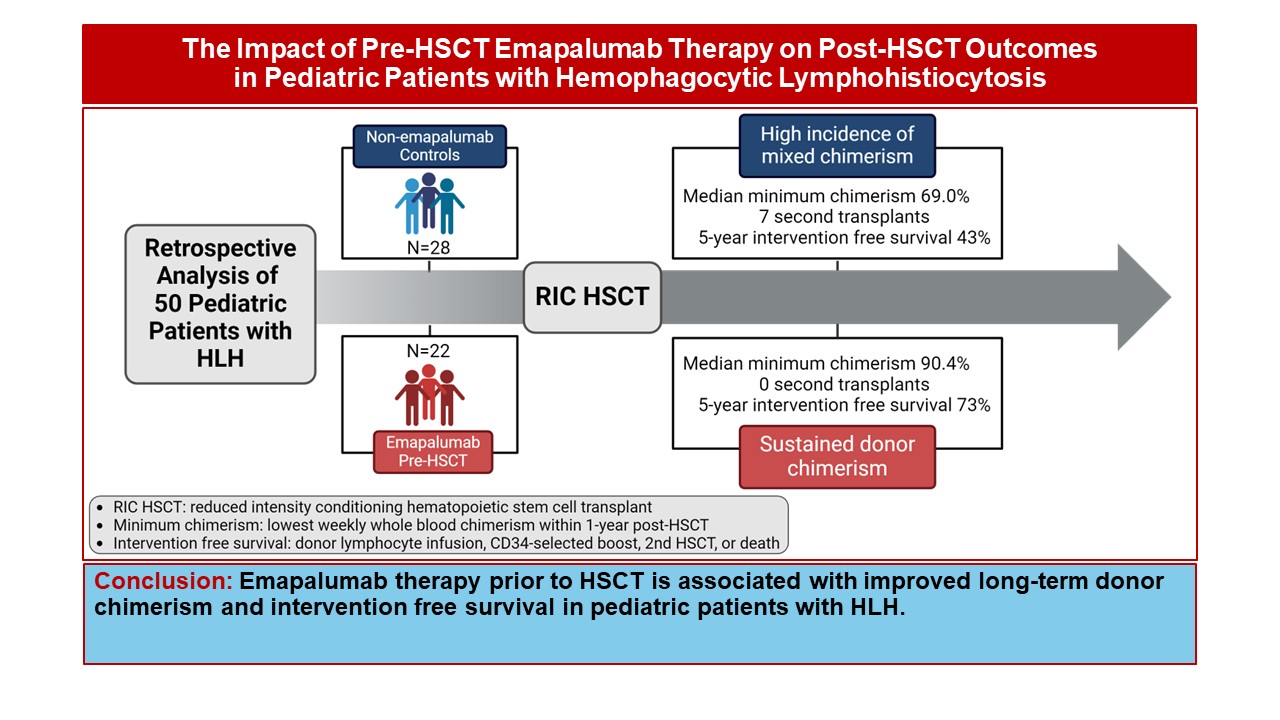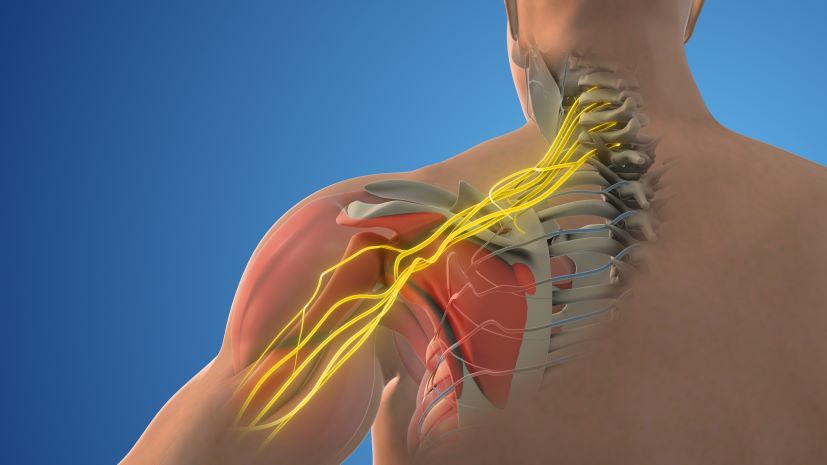Emapalumab Extends ‘Intervention-Free’ Survival for Children with HLH
Research By: Bethany Verkamp, MD | Michael B. Jordan, MD
Post Date: September 4, 2024 | Publish Date: Aug. 27, 2024

The antibody treatment emapalumab helps children fare better during a subsequent stem cell transplant to treat the rare blood disease hemophagocytic lymphohistiocytosis (HLH), according to clinical study results reported in the journal Blood.
The study, published online Aug. 27, 2024, was led by first author Bethany Verkamp, MD, Division of Hematology/Oncology at Cincinnati Children’s, and corresponding author Michael B. Jordan, MD, Division of Immunobiology. Co-authors included Pearce Kieser, Sonata Jodele, MD, Anthony Sabulski, MD, and Rebecca Marsh, MD.
What is HLH?
HLH is caused by uncontrolled activation of lymphocytes and macrophages that flood the blood stream with high amounts of inflammatory cytokines in a so-called cytokine storm. If not recognized and treated promptly, HLH can lead to multiple organ failure and death.
Primary, or familial, HLH occurs in about 1.2 cases per million children per year. About 20% of these children die within the first two months of diagnosis. Secondary or acquired HLH can occur at any age and is thought to arise from temporary immune system disturbances such as severe infections. Mortality rates for secondary HLH after diagnosis are thought to be lower, but still significant.
Cincinnati Children’s is the most experienced facility in the nation at treating HLH. Experts here have been working for years to improve outcomes for these children.
Currently, treatment can involve chemotherapies, corticosteroids and using emapalumab to manage the over-active immune system.
Most patients with familial HLH require stem cell transplantation for a long-term cure. Reduced-intensity conditioning hematopoietic stem cell transplantation (RIC-HSCT)—pioneered by the Bone Marrow Transplantation Program here—uses lower doses of chemotherapy compared to a standard transplant, which can give higher survival rates during transplant. However, this improvement comes at a cost—the patient’s own marrow can sometimes grow back and push out the donor’s stem cells, in processes called mixed chimerism and graft loss. Both conditions are dangerous and may require risky interventions to save the graft or starting over with a second stem cell transplant.
What is emapalumab?
Emapalumab was approved in 2018 as the first Food & Drug Administration (FDA)-approved therapy for primary HLH. Jordan was the principal investigator in the United States for the international clinical study that led to the FDA approval.
Unlike chemotherapy, emapalumab blocks the inflammatory effects of interferon-gamma (IFN-γ) but does not suppress the bone marrow. For many patients, this can be the difference in surviving to transplant.
The new study further documents the value of the antibody treatment in supporting improved stem cell transplant outcomes.

Improved intervention-free survival
This clinical study involved 50 children with HLH who received stem cell transplants between 2014 and 2022. The study compared outcomes between 22 patients who received emapalumab prior to the transplant conditioning regimen and 28 who did not.
The use of emapalumab was associated with a markedly lower incidence of mixed chimerism (48% vs. 77%) and of severe mixed chimerism (5% vs. 38%). Most importantly, the antibody treatment resulted in more children experiencing intervention-free survival (73% vs. 43%).
The improvement was even more striking in infants—the group at highest risk for mixed chimerism. Among these patients, 75% achieved intervention-free survival with the antibody treatment compared to 20% without the treatment.
“Emapalumab provides a solution to a particularly difficult clinical problem. Hopefully, these findings will change practices for clinicians who treat children with HLH,” Jordan says.
Looking forward, more research is needed to better understand how emapalumab alters stem cell transplants and whether it may have a beneficial impact in patients undergoing HSCT for other conditions.
Learn more about Cincinnati Children’s mission to defeat HLH
| Original title: | Emapalumab therapy for hemophagocytic lymphohistiocytosis prior to reduced-intensity transplantation improves chimerism |
| Published in: | Blood |
| Publish date: | Aug. 27, 2024 |
Research By









